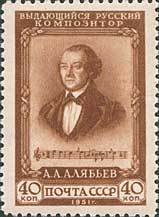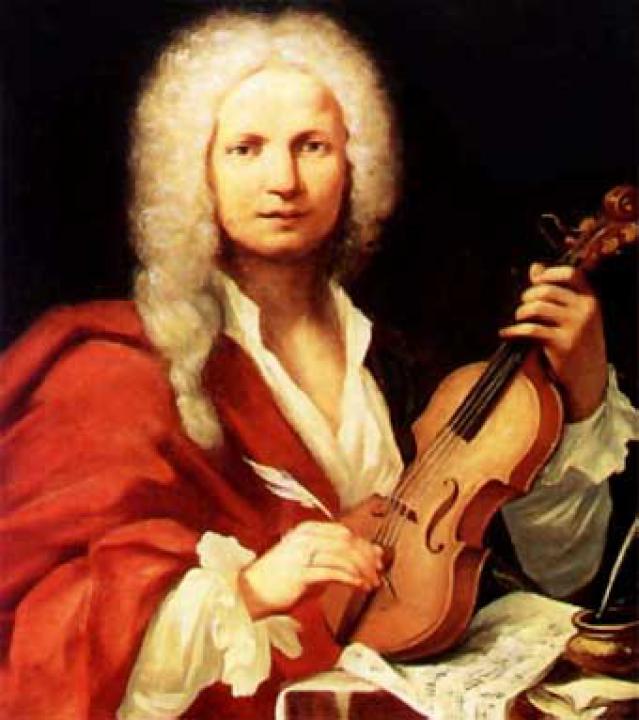Stamp: Alexander A. Alyabyev (1787-1851), Russian composer (Soviet Union, USSR 1951)
Alexander A. Alyabyev (1787-1851), Russian composer (Soviet Union, USSR 1951)
28 August (Soviet Union, USSR ) within release Russian Composers goes into circulation Stamp Alexander A. Alyabyev (1787-1851), Russian composer face value 40 Russian kopek
| Stamp Alexander A. Alyabyev (1787-1851), Russian composer in catalogues | |
|---|---|
| Michel: | Mi:SU 1592 |
Stamp is vertical format.
Alexander Aleksandrovich Alyabyev, also rendered as Alabiev or Alabieff (Russian: Александр Александрович Алябьев) (15 August [O.S. 4 August] 1787 – 6 March [O.S. 22 February] 1851) was a Russian composer known as one of the fathers of the Russian art song. He wrote seven operas, twenty musical comedies, a symphony, three string quartets, more than 200 songs, and many other pieces.Alyabyev's most famous work is The Nightingale (Solovey), a song based on a poem by Anton Delvig.Also in the issue Russian Composers:
- Stamp - Vasily S. Kalinnikov (1866-1901), Russian composer face value 40;
- Stamp - Alexander A. Alyabyev (1787-1851), Russian composer face value 40;
Stamp Alexander A. Alyabyev (1787-1851), Russian composer it reflects the thematic directions:
Famous People refers to the fame and public attention accorded by the mass media to individuals or groups or, occasionally, animals, but is usually applied to the persons or groups of people (celebrity couples, families, etc.) themselves who receive such a status of fame and attention. Celebrity status is often associated with wealth (commonly referred to as fame and fortune), while fame often provides opportunities to make money.
Music is an art form and cultural activity whose medium is sound organized in time. The common elements of music are pitch (which governs melody and harmony), rhythm (and its associated concepts tempo, meter, and articulation), dynamics (loudness and softness), and the sonic qualities of timbre and texture (which are sometimes termed the "color" of a musical sound). Different styles or types of music may emphasize, de-emphasize or omit some of these elements. Music is performed with a vast range of instruments and vocal techniques ranging from singing to rapping; there are solely instrumental pieces, solely vocal pieces (such as songs without instrumental accompaniment) and pieces that combine singing and instruments. The word derives from Greek μουσική (mousike; "art of the Muses"). In its most general form, the activities describing music as an art form or cultural activity include the creation of works of music (songs, tunes, symphonies, and so on), the criticism of music, the study of the history of music, and the aesthetic examination of music. Ancient Greek and Indian philosophers defined music as tones ordered horizontally as melodies and vertically as harmonies. Common sayings such as "the harmony of the spheres" and "it is music to my ears" point to the notion that music is often ordered and pleasant to listen to.
A composer is a person who writes music. The term is especially used to indicate composers of Western classical music, or those who are composers by occupation. Many composers are, or were, also skilled performers of music.



